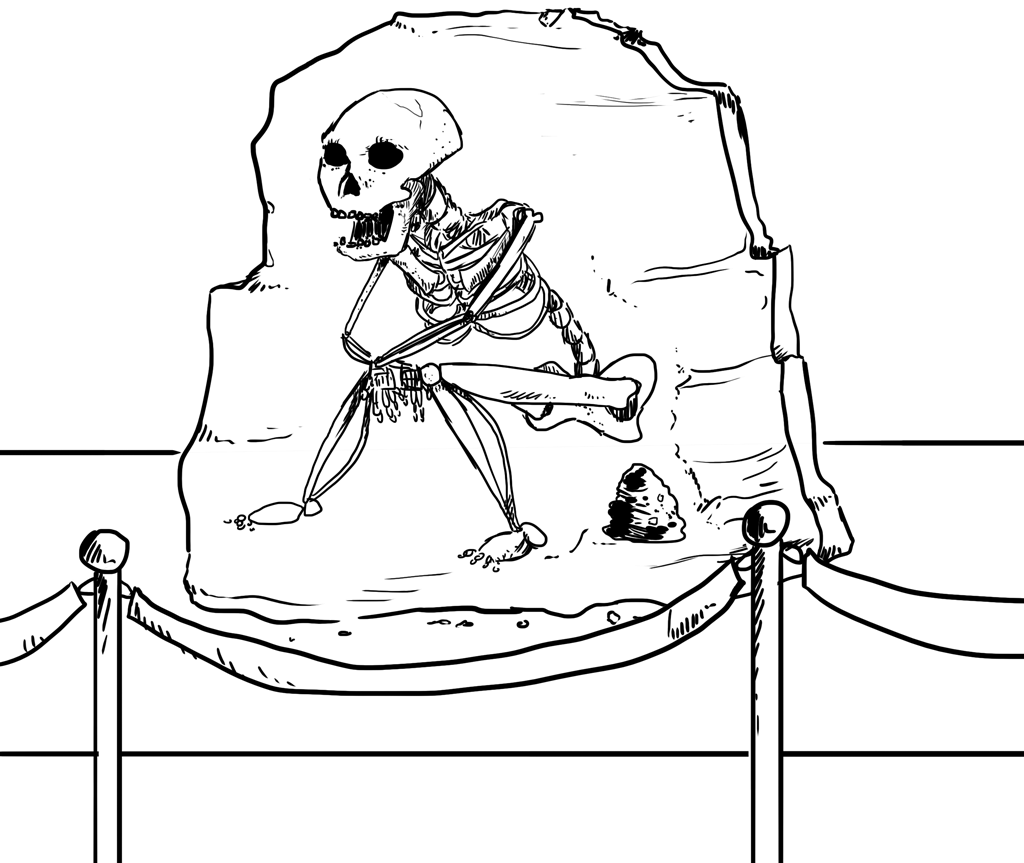By Taylor Breckles (The Cascade) – Email
Print Edition: July 2, 2014

Contrary to popular belief, Neanderthals did not sit around in caves roasting a hunk of meat over a fire (or not roasting it at all) all day, every day. Scientists have discovered the oldest piece of human fecal matter in the world and settled a long debate.
“Our results are the first direct evidence that plants were ingested as part of the diet,” said Ainara Sistiaga, lead author of the study published in PLOS One.
The coprolite (fossilized poop) sample came from a Neanderthal site in El Salt, Spain and was dated to be approximately 50,000 years old, which blows the former oldest coprolite (14,000 years old) out of the water.
Alison Brooks, professor of anthropology at George Washington University, completed research on Neanderthal teeth in 2010. In an interview with the Montreal Gazette, she said a meat-dominated diet was previously suggested by the isotopes found in Neanderthal bones.
Now it seems they ate their vegetables, too.
“It confirms what we were arguing about Neanderthal diets and it offers a whole new way of looking at [them],” said Brooks.
After this discovery, scientists from MIT as well as the University of La Laguna analyzed the samples. They found that while the typical Neanderthal diet was dominated by meat, some plants were thrown in as well.
Hardly vegetarian, the Neanderthals at least started achieving more of a balanced diet, although Sistiaga said they had a long way to go considering the predominant traces of cholesterol.
She went on to explain why this discovery is so monumental.
“Except for the evidence of entrapped microfossils and organic residues in Neanderthal teeth, all previous paleodietary reconstructions have been based on indirect evidence where preferential or selective preservation plays a key role,” Sistiaga reported in the study.
In other words, identifying meat proteins was always easier in previous coprolite samples. Though recent Neanderthal dental records suggested they might have eaten plants, nobody could be certain until the recent poop was discovered.
The feces also revealed Neanderthals may have had an advanced digestive system not unlike our own.
Although Neanderthals are proven to have eaten vegetables, other studies suggest that they might not have been ingested for the nutritional value or taste, but were instead eaten via the stomachs of other animals, according to the Montreal Gazette.
It may have been an accidental ingestion while trying to get to the meat, reminiscent of hiding vegetables in food for picky children, but Neanderthals ate them instead of spitting them out, which must count for something.
Regardless of why Neanderthals consumed vegetables, Sistiaga confirmed that the waste discovery reveals a new way to study the biology of our ancestors.

